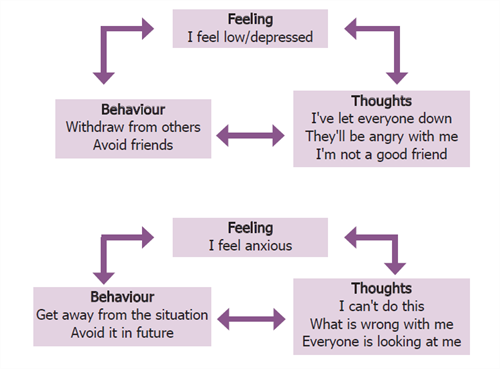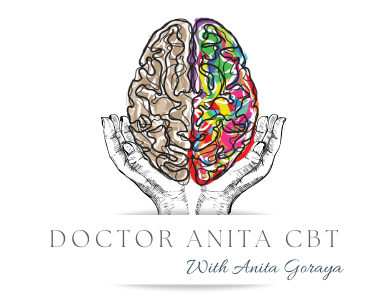How does CBT work?
Cognitive Behaviour Therapy (CBT) in a nutshell
CBT is a form of "talking and doing" therapy that addresses the problems you're currently facing. While we delve into your past just enough to understand the origins of your current thought and behaviour patterns, the focus is on teaching you skills and techniques to shift these patterns to more adaptive ones.
At the outset, we'll establish your goals for change, enabling us to monitor your progress throughout the treatment.
What is a session like?
CBT sessions are structured, with both the client and therapist bringing topics to discuss. You may wish to talk about difficult or distressing problems you've experienced recently. Together, we'll identify new skills and techniques to help manage these situations. As we analyse a few challenging situations, you'll likely notice recurring patterns of thought and behaviour that negatively impact your life.
The focus of our treatment will be on discussing these patterns and learning evidence-based CBT skills to address them.

Sessions are 50 minutes long and typically occur weekly. It's crucial to practice the agreed-upon changes in behaviour or new skills outside of the therapy room. Therefore, "homework" will usually be assigned each week, naturally building on what was discussed during the session. Research shows that clients who regularly practice new skills outside of therapy progress significantly more quickly.
Most clients start to see benefits after a few sessions, with the total number of sessions ranging from 8 to 20. All sessions are conducted securely via Zoom.
What's the theory behind CBT?
CBT is based on the idea that how we think about situations affects how we feel and behave. Our thinking is influenced by our childhood and significant past experiences plus our genes and lifelong sociocultural factors - we don't just arise as we are today out of nowhere, but from a combination of our nature and our nuture.
How does negative thinking start?
Negative thinking patterns can begin in childhood. For instance, if you didn't receive much attention or praise from parents or teachers, you might have thought, "I'm useless, I'm not good enough." Over time, these assumptions can become beliefs, leading to automatic negative thoughts in adulthood. This way of thinking can impact your feelings at work, in relationships, and in general life.
If these negative interpretations of situations go unchallenged, they can create a continuous, vicious cycle of negative thoughts, feelings, and behaviours.

